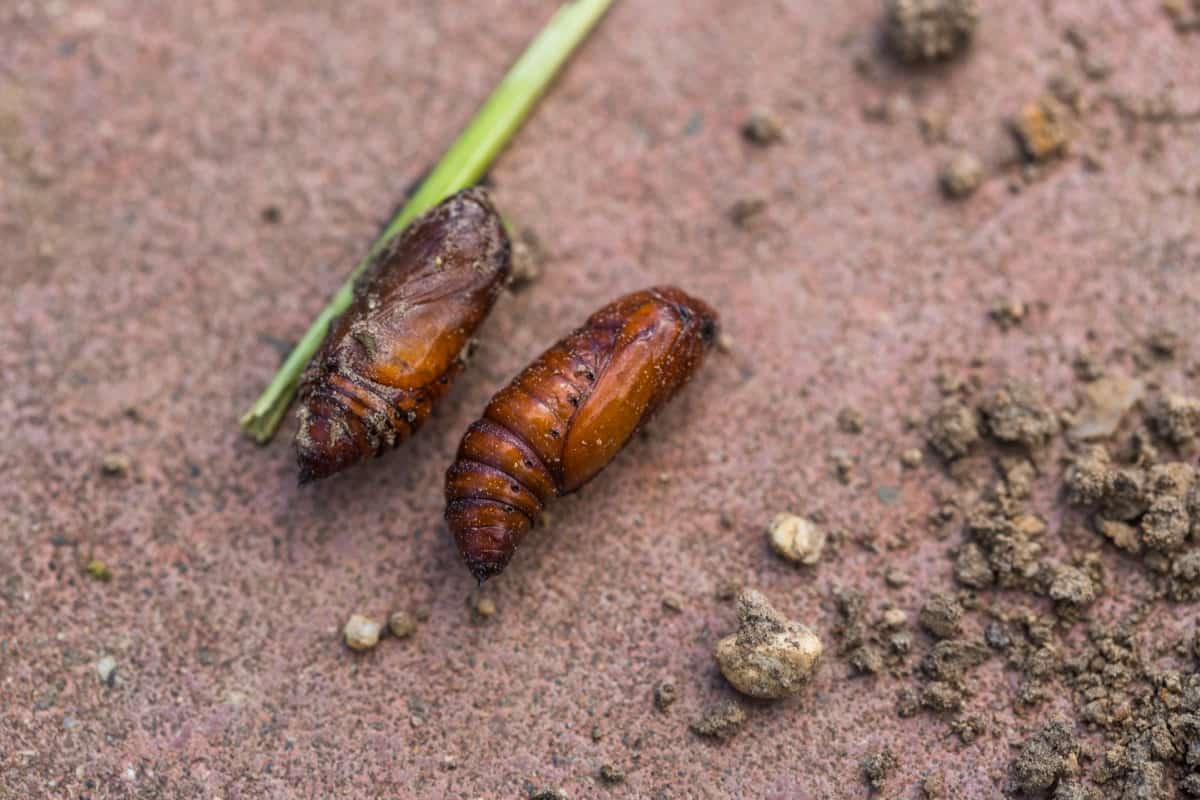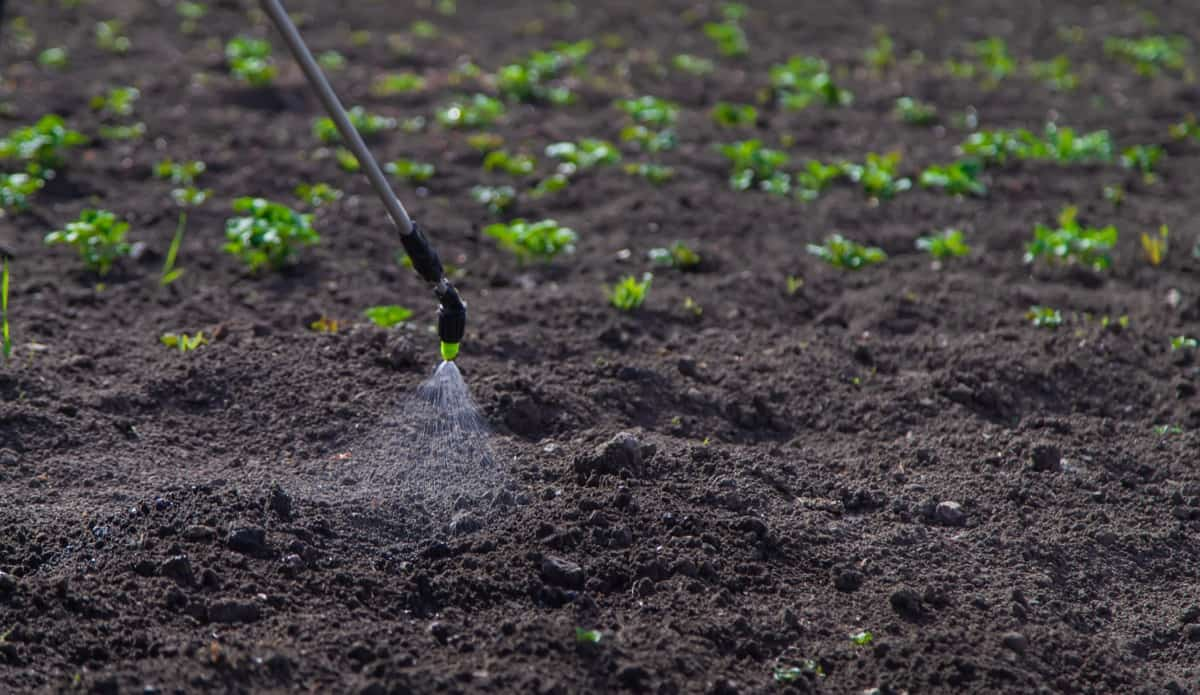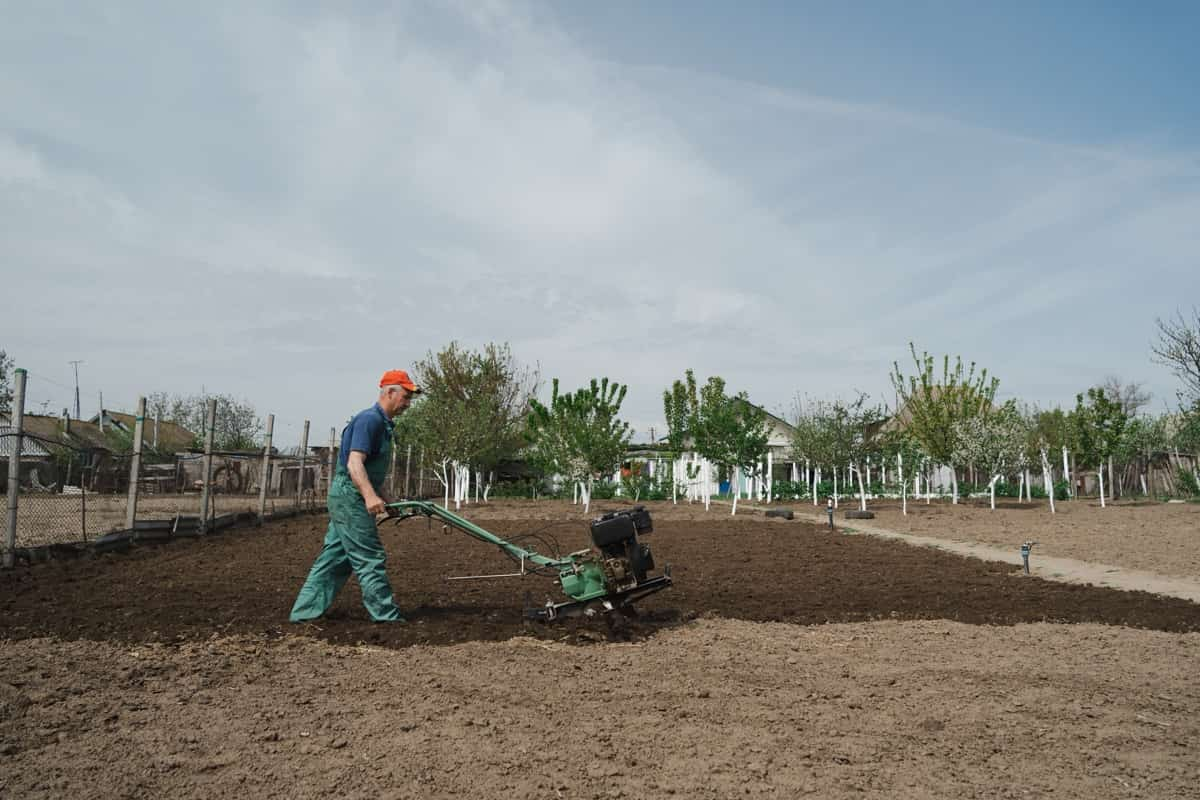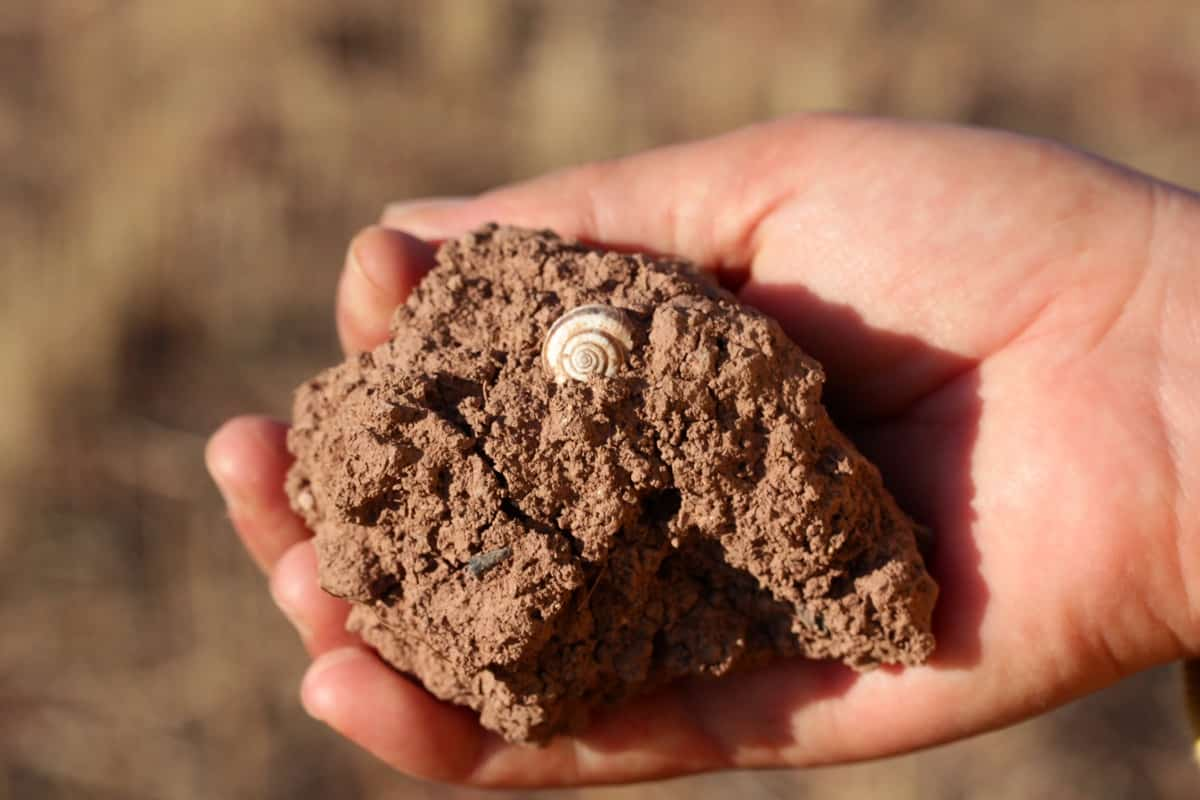Maintaining a thriving garden often involves dealing with unwanted insects that can harm your plants. However, resorting to toxic chemicals is not the only solution. This guide, “How to get rid of bugs in garden soil naturally,” will explore organic pest control methods, offering non-toxic, eco-friendly alternatives to rid your garden of pests. These practices not only protect your plants but also support a healthier environment.

How to Control Bugs in Garden Soil Naturally
Organic Pest Control Methods for Garden Soil
How to control bugs in garden soil naturally? By implementing crop rotation. It is a strategic technique where you change the types of plants grown in different areas each season. This disrupts the life cycles of specific soil-dwelling pests, reducing their populations naturally. For example, if you grow tomatoes in one area one year, switch to a different plant family like beans the next.
Companion Planting involves pairing certain plants with natural pest-repelling properties alongside vulnerable crops. For instance, marigolds deter nematodes with their root secretions, and basil can repel aphids due to their strong aroma.
Natural Ways to Eliminate Bugs From Garden Soil: How To Control Bugs In Garden Soil Before Planting
- Beneficial Insects: Introducing beneficial predators like ladybugs, lacewings, and nematodes to your garden can help control harmful pests. These insects feed on pests, reducing their populations and minimizing plant damage.
- Soil Improvement: Healthy soil is less susceptible to pest infestations. Enhance soil quality by adding compost and mulch. This improves plant resilience and fosters a balanced ecosystem that discourages pests.
- Sanitation: Regularly remove debris, fallen leaves, and weeds from your garden. These can serve as breeding grounds and hiding places for pests. By keeping your garden clean, you reduce their habitat and breeding opportunities.
Effective Techniques for Getting Rid of Insects in Garden Soil
Beneficial Nematodes: These tiny roundworms are excellent allies in pest control. When introduced into the soil, they actively seek out and parasitize soil-dwelling pests such as grubs, weevils, and nematodes. Beneficial nematodes are safe for plants and humans, making them a non-toxic, biological solution for pest management.
Neem Oil: It is a powerful natural insecticide and repellent derived from the neem tree. It disrupts the feeding and reproductive patterns of various soil-dwelling insects, including aphids, mites, and whiteflies. It is safe for most plants and poses minimal risk to beneficial insects, making it an eco-friendly option.
Non-toxic Remedies for Bug Infestations in Garden Soil: How To Control Bugs In Vegetable Garden Soil
Diatomaceous Earth: Diatomaceous earth, made from fossilized algae, consists of microscopic, sharp particles that harm the exoskeletons of insects. By lightly sprinkling it in affected areas, you can deter crawling pests. It’s a non-toxic solution that effectively manages pests while minimizing environmental harm.
In case you missed it: How to Get Rid of Bugs on Fresh-Cut Flowers: Natural Remedies

Biological Controls: Introducing beneficial insects such as ladybugs, parasitic wasps, and predatory beetles to your garden can help maintain a natural balance by preying on harmful pests. These predators can control pest populations without the need for chemical intervention, promoting a healthier garden ecosystem.
Floating Row Covers: Covering your plants with mesh or fabric creates a physical barrier that prevents insects from reaching them. This technique is particularly useful for safeguarding plants from flying pests, such as aphids and cabbage moths. It is a non-invasive and environmentally friendly way to prevent pest infestations.
Eco-friendly Solutions for Eliminating Pests in Garden Soil
Vinegar Solution: It acts as a soil bug killer. Create a water and vinegar mixture, using about one part vinegar to three parts water. This solution can deter ants and other pests. Spray it directly on affected areas or around the garden to create a barrier that keeps pests at bay. The strong odor and acidity of vinegar are natural repellents for many common garden pests. Instead of vinegar solution, kill bugs in soil with hydrogen peroxide.
Essential Oils
- Dilute a few drops of essential oil (e.g., peppermint, lavender, or eucalyptus) in a large water container. A few drops are usually sufficient, as essential oils are concentrated.
- Mix the solution thoroughly.
- Transfer the diluted essential oil mixture into a spray bottle.
- Spray the solution on and around your plants and the pathways and areas where insects are a problem. Reapply as needed, especially after rainfall.
Safe Methods to Control Bugs in Garden Soil Naturally
Beneficial Fungi (Mycorrhizal Fungi)
- Mycorrhizal Fungi: It’s available in various forms, including granules, powders, or liquid suspensions.
- Prepare the Soil: Ensure the soil is well-prepared by loosening it and removing weeds or debris. This allows for better integration of the fungi.
- Apply Mycorrhizal Fungi: Follow the manufacturer’s instructions for the appropriate amount of mycorrhizal fungi to use based on the size of your garden or the specific plants you’re working with.
- Incorporate into Soil: Gently mix the mycorrhizal fungi into the soil around the root zone of your plants. Pay special attention to ensure good contact between the fungi and the roots.
- Water Thoroughly: Water the area well to help the mycorrhizal fungi establish a connection with the plant’s roots.
- Maintain Regular Care: Continue with your regular gardening practices, including watering, mulching, and fertilizing as needed.
Chemical-free Approaches to Eradicate Insects From Garden Soil: How To Control Bugs Out Of Vegetable Gardens Naturally
- Peel and crush the garlic cloves.
- Chop the chili peppers into small pieces. Be cautious when handling them, as they can be spicy and may irritate the skin and eyes.
- Combine the crushed garlic and chopped chili peppers in a container.
- Add one quart (4 cups) of water to the container.
In case you missed it: How to Get Rid of Bugs in Kitchen Compost Bin: Stop Tiny Bugs, Fruit Flies, Ants, and Spiders

- Infusion: Allow the mixture to sit for at least 24 hours. This allows the water to absorb the natural oils and compounds from the garlic and chili peppers.
- Strain: After the infusion, strain the mixture through a fine sieve to remove any solid pieces. Fill this liquid into a spray bottle.
- Spraying: Thoroughly spray the mixture on your plants, focusing on the leaves and soil. Ensure good coverage, especially in areas where pests are more prominent.
- Reapplication: For continued protection, reapply the spray every 1-2 weeks or after rainfall. The strong scents and natural compounds from the garlic and chili peppers deter various pests. This homemade spray is an eco-friendly and non-toxic solution for managing garden pests.
Environmentally Friendly Practices for Bug Management in Garden Soil
- Hygiene and Sanitation: Garden Clean-Up: Regularly remove fallen leaves, dead plant material, and debris from your garden. These organic matter sources can provide shelter and breeding sites for pests. Maintaining a clean garden reduces hiding places for insects.
- Weed Control: Weeds can also harbor pests and provide pathways for them to access your plants. Keeping your garden weed-free through pulling or mulching helps deter unwanted insects.
Natural Insect Repellents for Garden Soil
- Cinnamon: Sprinkle ground cinnamon around your plants or mix a cinnamon spray with water. It can help keep ants and other crawling insects away.
- Coffee Grounds: Sprinkle coffee grounds around the plants as a barrier to deter ants and slugs.
- Eggshell Powder: Crushed eggshells create a barrier that deters snails and slugs when sprinkled around plants.
- Marigolds and Chrysanthemums: Planting these flowers in or near your garden can help repel certain insects due to their natural repellent properties.
Preventive Measures to Keep Away Small Bugs From Garden Soil
- Integrated Pest Management (IPM): Implement a holistic approach to pest management that includes various strategies such as biological controls, cultural practices, and minimal pesticide use.
- Regular Inspection: Regularly inspect your plants for early signs of pest infestations. Early intervention can prevent the issue from spreading.
In case you missed it: Natural Ways to Get Rid of Tiny Bugs on Tomato Plants: Aphids on Tomatoes, Control with Home Remedies

Natural Repellents: Citrus Peels
- Collect citrus peels from fruits like oranges, lemons, or limes. You can also grind them to release more of the citrus scent.
- Scatter the peels or ground citrus around your garden beds or near plants prone to ant or pest infestations.
- Refresh the citrus peels periodically, as the scent may diminish over time.
Conclusion
Incorporating non-toxic and eco-friendly bug control methods into your gardening routine is a sustainable choice for maintaining a healthy garden ecosystem. From beneficial nematodes to natural repellents and companion planting, you can enjoy a thriving garden while promoting biodiversity and reducing the dependency on harmful chemical pesticides.
- Feed Your Flock for Less: Top 10 Tips to Save on Chicken Feed
- Ultimate Guide to Ossabaw Island Hog: Breeding, Raising, Diet, and Care
- Hatching Answers: The Top 10 Reasons Your Chickens Aren’t Laying Eggs
- Eggs and Economics: Breaking Down the Cost of Raising Backyard Chickens
- Defend Your Greens: Proven Methods to Keep Iguanas Out of Your Garden
- Ultimate Guide to Cinnamon Queen Chicken: A Comprehensive Guide for Beginners
- Ultimate Guide to California Tan Chicken: Breeding, Raising, Diet, Egg-Production and Care
- Ultimate Guide to Marsh Daisy Chicken: Breeding, Raising, Diet, and Care
- 10 Types of Chicken Farming Businesses You Can Start for Profits